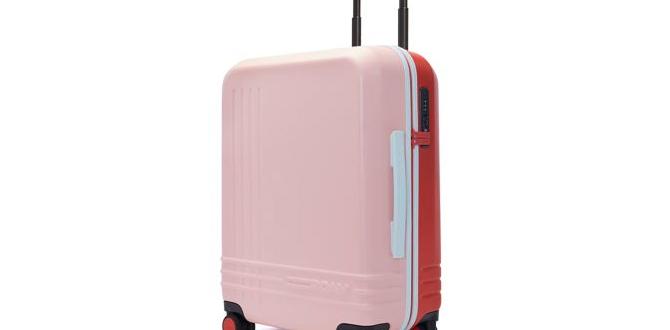Stay safe in Abu Dhabi by recognizing common tourist scams. Be aware of touts, overcharging, and fake offers. Trust official sources for information and bookings, keep valuables secure, and always verify offers before agreeing. Your confident enjoyment of Abu Dhabi awaits with smart awareness!
Abu Dhabi Safety: Genius Scam Avoidance for Travelers
Planning a trip to Abu Dhabi can be incredibly exciting! This magnificent city offers a blend of modern marvels and rich cultural heritage. However, like any popular tourist destination, it’s wise to be prepared for potential scams. Don’t let the thought of scams spoil your amazing getaway. This guide is designed to equip you with simple, effective strategies to spot and avoid common tourist tricks, ensuring your Abu Dhabi adventure is safe, smooth, and memorable. We’ll walk through the most common pitfalls and give you the confidence to enjoy everything this incredible destination has to offer.
We believe every traveler deserves peace of mind. That’s why we’ve put together this easy-to-follow guide. You’ll learn exactly how to navigate common situations, protect your belongings, and make informed decisions. Get ready to explore Abu Dhabi with a smile, knowing you’re well-prepared!
Understanding the Landscape: Common Scams in Abu Dhabi
Abu Dhabi is generally a very safe city, and most visitors have wonderful experiences without encountering any issues. However, being informed about potential cons is a smart travel practice. Scammers often target tourists with a quick buck in mind, and understanding their tactics is the first step to outsmarting them. These schemes are usually not aggressive but rely on a bit of deception and pressure.
Most scams in tourist areas are relatively low-stakes and aim to separate you from a small amount of money through inflated prices or misleading offers. The good news is that with a little common sense and awareness, these are easily avoidable. Let’s dive into some of the most frequently encountered situations and learn how to handle them like a seasoned traveler.
The “Friendly” Local Usher
You might be approached by someone who seems incredibly helpful, perhaps offering to guide you to a particular attraction or a “secret” local spot. They might claim to be offering a genuine service or a special deal not available elsewhere. Often, they will then demand an exorbitant “tip” or guide you to overpriced shops where they receive a commission.
- Recognize the Tactic: Unsolicited “help” from someone you haven’t asked.
- What to Do: Politely but firmly decline their offer. You can say, “No, thank you, I’m fine” or “I have my own map/plan.” If they insist, walk away.
- Prevention: Have your route planned using a reliable map or your phone. Stick to well-trodden paths and look for official information booths if you need assistance.
The “Too Good To Be True” Deal (Tours & Souvenirs)
Be wary of incredibly cheap tour packages or deeply discounted souvenirs, especially from street vendors or individuals approaching you. These deals often come with hidden costs, include no-show tours, or are for counterfeit goods. The prices might seem irresistible, but the reality is far from it.
- Recognize the Tactic: Extreme discounts, especially for tours booked on the spot from unofficial sources.
- What to Do: Always book tours and significant purchases through reputable hotels, official tourism websites, or well-known agencies. Compare prices and read reviews before committing.
- Prevention: If a price seems too good to be true, it almost certainly is. Always ask for a detailed breakdown of what is included in a tour package before paying anything. Check the official tourism website for Abu Dhabi for trusted recommendations.
The Souvenir Shop Commission Scam
Some taxi drivers or individuals offering to show you around might steer you towards specific souvenir shops, claiming they offer the best prices or unique items. In reality, they are likely getting a commission from the shop for bringing customers, meaning you’ll end up paying inflated prices. This is a classic “cash for referrals” scheme.
- Recognize the Tactic: A driver or guide strongly pushing you to visit a particular shop.
- What to Do: If you want to buy souvenirs, research reputable places beforehand or ask your hotel concierge for recommendations. Politely inform your driver if you have your own shopping plans.
- Prevention: Use metered taxis or ride-sharing apps like Careem or Uber. These services are generally reliable and less likely to engage in commission-based scams.
The “Special Offer” Restaurant/Café
You might be invited to a particular restaurant or café that claims to have an exclusive offer or a special performance. Once you’re seated, you discover the prices are significantly higher than usual, or the “special offer” is a trap to get you to spend more. Sometimes, a bill might be inflated with items you didn’t order.
| Scam Type | How it Works | How to Avoid |
|---|---|---|
| “Friendly” Local Usher | Offers unsolicited guidance, then demands a high “tip.” | Politely decline unsolicited help. Use official maps/apps. |
| “Too Good To Be True” Deals | Offers extremely cheap tours or souvenirs that are flawed or overpriced upon closer inspection. | Book with reputable companies. Verify inclusions and read reviews. |
| Souvenir Shop Commission | Drivers/guides take you to overpriced shops for commission. | Book your own shopping. Use official transport or ride-sharing. |
| “Special Offer” Restaurant | Lures you with deals, then presents inflated prices or hidden charges. | Check menus and prices before ordering. Ask for the bill to be itemized. |
| The Fake Police Officer/Official | Someone in uniform (or claiming to be) asks to see your passport or money for a “routine check” to steal them. | Never hand over your passport or cash to anyone claiming to be law enforcement unless you are at an official police station. Ask for identification and to accompany them to the nearest police station. |
Countermeasures for Dining Dangers
When considering a restaurant, especially in tourist hubs, always ask to see a menu with prices before you sit down. If there’s no menu, or if someone is being pushy about seating you, it’s a red flag. Once you receive the bill, take a moment to review it. Make sure the prices match the menu and that you’re only being charged for what you ordered. If anything seems off, politely ask for clarification. Don’t be afraid to question charges; it’s your right as a customer.
The “Fake” Attraction or Experience
Occasionally, you might encounter individuals who try to sell you tickets for a “special event” or an attraction that doesn’t exist or is significantly overrated. They might set up a temporary stand or approach you on the street with compelling pitches and photos.
- Recognize the Tactic: Spontaneous sales of tickets or access to events by unknown individuals.
- What to Do: All official attractions and events in Abu Dhabi have dedicated ticketing booths, official websites, or authorized resellers. If you’re interested in an event, find its official information source.
- Prevention: Always purchase tickets for attractions and events directly from the venue’s official website or authorized ticket vendors. Be skeptical of anyone selling tickets on the street.
The Taxi Meter Trick
While most taxi drivers in Abu Dhabi are honest, a few might try to cheat you. This can involve not using the meter, claiming the meter is “broken,” or taking a longer route than necessary. Starting the meter from a higher initial charge is also a possibility, though less common.
How to Spot and Avoid:
- Always Ensure the Meter is On: Before starting your journey, confirm the driver will use the meter and that it’s visibly switched on. If they claim it’s broken, ask them to go to a taxi stand where a working meter taxi can be found.
- Know the General Route: Use a navigation app on your phone to have a general idea of the route. This helps you identify significantly longer detours.
- Official Taxis: Use official Abu Dhabi taxis (white with colored roofs) or reputable ride-sharing apps like Careem and Uber. Pre-paid taxis are also available at the airport and major hotels.
- Beware of “Fixed Prices”: Unless it’s a pre-booked, official service with a clear fixed price, avoid drivers who insist on a fixed fare that seems high.
For more information on safe and reliable transport options, check out the Abu Dhabi Department of Transport’s taxi services information.
The Language Barrier Exploitation
Some scammers might use a “language barrier” as an excuse to overcharge or confuse you. They might pretend not to understand basic requests or intentionally misinterpret your directions to increase the fare or guide you to a specific business.
- Recognize the Tactic: Sudden inability to understand simple directions or requests.
- What to Do: Speak clearly and use universal gestures. If possible, have the address written down. If language is a persistent issue, consider booking services or transport through your hotel.
- Prevention: Learning a few basic Arabic phrases can be helpful, but most people in tourist areas speak English. Have important addresses written down in Arabic if possible.
Protecting Your Valuables and Personal Information
Beyond avoiding overt scams, basic security practices are crucial for a stress-free trip. This includes protecting your belongings and personal data.
Smart Money Management
Keep minimal cash on hand. Use credit cards for most transactions, as they offer better protection against fraud than cash. Be mindful of your surroundings when using ATMs.
- Credit Cards: Inform your bank about your travel dates to avoid your card being flagged for suspicious activity.
- ATMs: Use ATMs attached to reputable banks or inside well-lit, secure locations. Be discreet when entering your PIN and check the machine for any tampering devices.
- Cash: If you need cash, withdraw only what you expect to use for a day or two. Keep it in different places on your person or in your belongings.
Securing Your Belongings
When out and about, it’s essential to be aware of your surroundings. Pickpocketing is rare in Abu Dhabi, but it’s always better to be cautious.
- Bags: Use cross-body bags or backpacks that can be worn in front of you, especially in crowded areas like souks or markets.
- Phones & Wallets: Don’t leave your phone or wallet unattended on tables or in easily accessible pockets.
- Hotel Safe: Utilize the safe provided in your hotel room for your passport, excess cash, and other valuables you don’t need while exploring.
Digital Safety
In today’s connected world, protecting your digital identity is as important as protecting your physical belongings.
- Public Wi-Fi: Be cautious when using public Wi-Fi networks. Avoid accessing sensitive information like banking details. Consider using a Virtual Private Network (VPN) for added security.
- Phishing: Be wary of unsolicited emails or messages asking for personal information or claiming you’ve won a prize.
- Lost Devices: If you lose a phone or other device, ensure you have the ability to remotely lock or erase its data.
Empowering Yourself: Proactive Safety Measures
The best way to avoid scams is to be prepared and informed before you even arrive. A little preparation goes a long way in ensuring a smooth and enjoyable trip.
Research is Key
Before your trip, spend some time researching Abu Dhabi. Understand its culture, common tourist attractions, and general safety advice. Reliable sources can include official tourism websites, reputable travel blogs (like this one!), and government travel advisories.
The U.S. Department of State often provides destination-specific travel information, which can include safety advisories and tips for various countries, including the UAE.
Communicate Your Plans
Let a family member or friend know your itinerary, flight details, and where you’ll be staying. Check in with them periodically. This is a standard safety practice for any traveler, especially solo adventurers.
Stay Connected (Smartly)
Having a local SIM card or an international roaming plan can be invaluable. It allows you to use GPS, contact taxis, look up information instantly, and stay in touch. However, always be mindful of overspending on data.
Trust Your Gut Instinct
If a situation feels uncomfortable or suspicious, it probably is. Don’t feel pressured to engage with anyone or any offer that makes you uneasy. It’s perfectly okay to remove yourself from a situation politely but firmly.
| Proactive Step | Benefit | How to Implement |
|---|---|---|
| Destination Research | Informed decision-making, reduced surprise. | Read official tourism sites, travel blogs, advisories. |
| Itinerary Sharing | Emergency contact point, peace of mind. | Share details with a trusted friend/family member. |
| Local Connectivity | Real-time info, quick communication. | Purchase local SIM or activate international roaming. |
| Gut Instinct Reliance | Intuitive safety assessment. | Listen to your inner voice; disengage from suspicious situations. |
| Learn Basic Phrases | Cultural courtesy, aids communication. | Learn “hello,” “thank you,” “how much?” in Arabic. |
Navigating Specific Scenarios
Let’s consider a few practical scenarios and how to apply these scam avoidance tactics.
Scenario 1: Arriving at the Airport
Upon arrival, you might be approached by unofficial taxi drivers or individuals offering “private tours” or “accommodation deals.”
- Correct Action: Head directly to the official taxi rank. If you’ve pre-booked transport, ensure you meet your driver at the designated pickup point. Ignore anyone who approaches you offering unsolicited services before you’ve reached official channels. Your hotel concierge can also be a great resource for arranging reliable airport transfers if you haven’t done so already.
Scenario 2: Exploring a Souk (Market)
These bustling markets are exciting, but also prime locations for minor scams like inflated prices or counterfeit goods.
- Correct Action: Be polite but firm when bargaining. Decide what you are willing to pay before you start negotiating. If a vendor is overly aggressive or you feel pressured, simply walk away. Look for fixed-price shops if you prefer a no-haggle experience. If you’re looking for specific, high-value items, consider reputable stores recommended by your hotel rather than street vendors.
Scenario 3: Taking a Taxi to a Tourist Attraction
You want to visit the Sheikh Zayed Grand Mosque or the Louvre Abu Dhabi.
- Correct Action: Use a metered taxi or a ride-sharing app. Confirm the driver understands your destination. If you have the address written down, show it to them. Keep your phone handy with a navigation app running so you can follow along. If the fare seems exceedingly high for the distance traveled, politely question it upon arrival.
FAQs
Q1: Is Abu Dhabi a safe city for solo female travelers?
A1: Yes, Abu Dhabi is known for its extremely low crime rates and is considered very safe, even for solo female travelers. Women can feel comfortable exploring the city, though it’s always wise to dress modestly out of respect for local culture and maintain general travel awareness.
Q2: What is the best way to get around Abu Dhabi to avoid scams?
A2: The safest and most reliable ways to get around Abu Dhabi are by using official taxis (look for white cars with colored roofs), reputable ride-sharing apps like Careem or Uber, or the public bus system. Pre-booked tours with well-known companies are also a good option.








